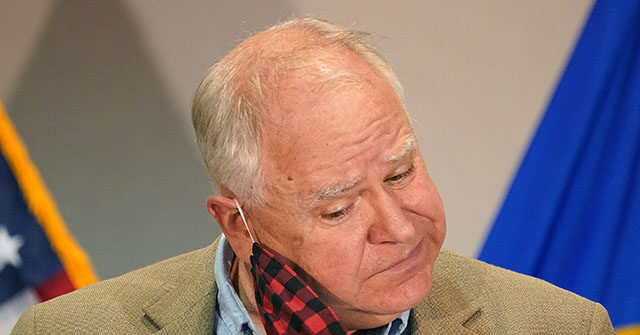The state of Minnesota has recently been thrust into the spotlight due to a significant scandal involving COVID relief fund fraud, particularly within the Somali community in Minneapolis. Under the oversight of Governor Tim Walz, reports from non-partisan state auditors have revealed alarming levels of misappropriated government funds. CNN has now highlighted that Minnesota has become the epicenter for the largest fraud case regarding COVID funding in the nation. The fraudulent activities revolve around a faux charity known as “Feeding Our Future,” through which 47 Somali immigrants are alleged to have stolen a staggering $250 million intended to provide support to families and children impacted by the COVID crisis.
The allegations point to a troubling pattern of mismanagement and neglect on the part of the Walz administration. Despite claims from Governor Walz that they identified the fraud “early” and have since sought to rectify the situation, evidence suggests that critical oversights in the Minnesota Department of Education allowed the fraud to flourish. A report from state auditors explicitly noted that the department’s inaction created an environment ripe for fraudulent activities, indicating that there were early warnings that went unaddressed. This failure to act is being scrutinized by political opponents, including Minnesota Republican House Minority Leader Lisa Demuth, who holds Walz accountable for failing to implement proper oversight and for not holding his commissioners responsible for their roles in the fraud.
In the wake of these reports, the absence of accountability from the Walz administration has been glaring. No officials have been reprimanded or dismissed in connection with the multiple audit findings that detail extensive fraud in Minnesota. CNN’s coverage of the situation has underscored a broader culture of unaccountability within state agencies, many of which fall under Walz’s leadership. This environment has been characterized by resistance to scrutiny, as agencies reportedly reacted defensively to the findings of state auditors, raising further questions about the administration’s willingness to confront the reality of the situation.
The Feeding Our Future fraud is just one aspect of a much larger issue of COVID funding fraud in the state, which totals around $550 million. Allegations against the organization include utilizing stolen funds for luxury items and real estate rather than their intended purpose of assisting needy families and children. There is a perception that Walz has been disengaged from the oversight process, leading to the prevailing sentiment that he has not taken the necessary steps to address the rampant fraud. Critics argue that a decisive leadership response is essential to restore trust and accountability within his administration and among the public.
Adding to the controversy is a public admonishment directed at Walz by Ramsey County District Court Judge John Guthmann. The judge chastised Walz for making misleading statements regarding his administration’s role in continuing financial support for Feeding Our Future even as the organization faced serious accusations of fraud. This incident has further eroded public confidence in Walz’s leadership, as questions loom regarding his understanding and handling of the situation. The potential ramifications extend beyond accountability; they include a fundamental reassessment of how local and state governments manage federal funding.
As the federal trials continue for individuals involved in the Feeding Our Future fraud, the impact of this scandal will resonate across Minnesota for years to come. The growing narrative of widespread fraud under the Walz administration might lead constituents to reevaluate their support for him and other Democratic leaders. The challenges posed by the pandemic have tested governance at all levels, but the apparent mismanagement in Minnesota highlights an urgent need for improved oversight and accountability in the distribution of emergency funds, ensuring that assistance reaches those who genuinely need it. The unfolding situation underscores the importance of maintaining integrity in government processes, especially during times of crisis.

